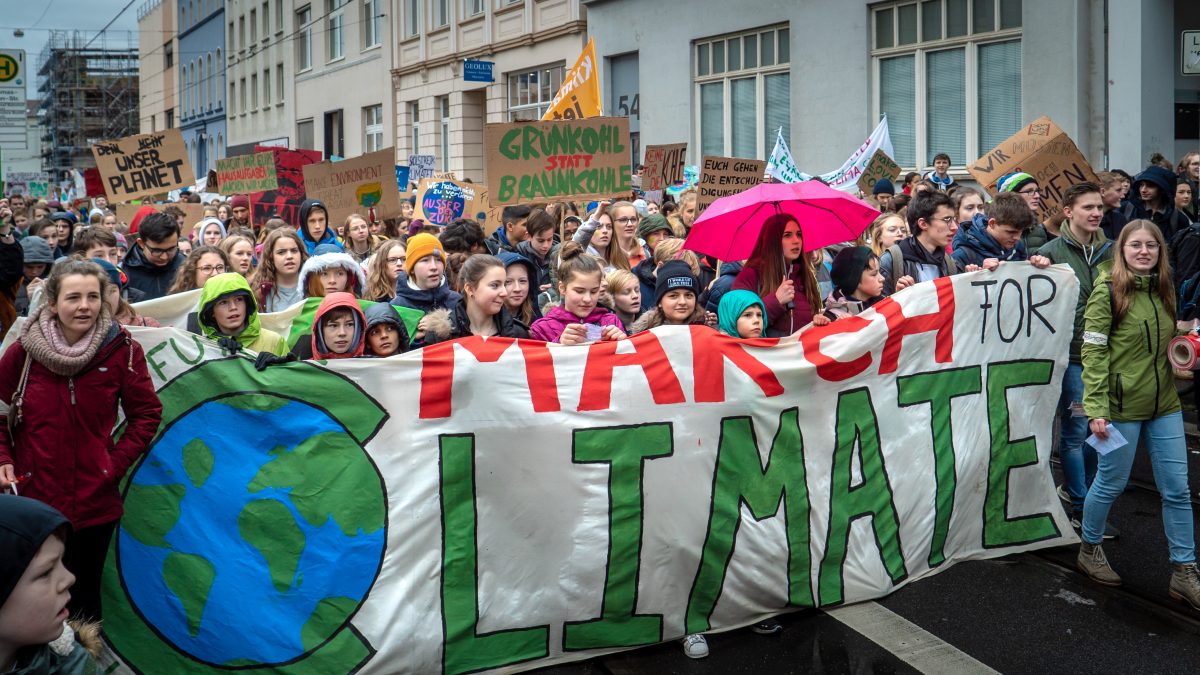In the late ’70s and early ’80s, CO² emissions were standing around 330ppm nearing the critical 350ppm which marks the point where the CO² in the atmosphere is no longer at a safe level. Since then global emissions have been on a steady rise and don’t look as if they will be slowing down anytime soon. As of this week, CO² emissions were found to be sitting at 408.59ppm.
That number is significantly higher than what it was in the late ‘70s and has caused people around the world to recognize Climate Change as a crisis. However, even after this recognition, many people still do not realize climate change as the crisis it is and for those who do realize, they are stuck, frustrated, trying to figure out how they can solve this problem at hand.
Last Friday, September 20th marked the beginning of Global Climate Change Week which will last until this upcoming Friday. Primarily, this is a week dedicated to looking at the Climate Change Crisis and discussing what ‘we’ as individuals around the globe can do to help this crisis from getting worse. Across the world, during this week, there are various events being held to discuss solutions and evoke change from our nations.
On Monday the United Nations held the ‘2019 UN Climate Action Summit’ and UN Secretary-General António Guterres requested that leaders come prepared with realistic ideas: “I want to hear about how we are going to stop the increase in emissions by 2020, and dramatically reduce emissions to reach net-zero emissions by mid-century”.
Similarly the Saturday before the summit took place, the UN hosted a ‘Climate Action Youth Summit’. This event is geared towards considering what ideas and solutions young leaders may have that could serve to help the crisis at hand. The youth are often looked over when it comes to ideas about decision making and this event is designed to give youth that voice they often don’t have.
Now, how can we as university students show support for Global Climate Change Week?
Last year 16-year-old Greta Thunberg was fed up with the lack of action regarding climate change decided to strike by skipping school on Fridays and protesting outside of Sweden’s Parliament. Since then Thunberg has inspired students around the world to join with more than 2,300 school strikes in just over 130 countries joining in on the May 24, 2019 climate strike.
Kickstarting Global Climate Change Week off is the Global Climate Strike led by Thunberg. This strike took place on September 20th and was predicted to draw participation from over 150 countries, making that strike the largest one yet. There will also be an equally impactfull and crowd-drawing strike closing out the week this upcoming Friday as well. There will be events held in Halifax on the strike days as well as all week that students can attend to promote Global Climate Change Week.
In our own town of Wolfville, a young child by the name of Lily-Beth was plagued with climate change and was able to see its negative impacts on the world. She decided to skip school on Friday for the Global Climate Strike and stood in the Clock Park on Main Street with the hope strikers from the nearby schools would join her in the protest for climate change. To her delight, Lily-Beth was greeted throughout her time on Main Street by many citizens and students supporting this cause.
Aside from striking, there are other opportunities for students to get involved in our own Annapolis Valley:
- Wednesday, September 25th: Stitch-In In Support of Global Action for Climate Justice from 4-6pm at the Clock Park on Main Street
- Friday, September 27th: A $20 bus taking people from the valley to Halifax for the closing strike
Additionally, students can support the movement on social media or can reach out to Acadia’s Climate Club in hopes of joining or finding information on any events they might have!

Comments
One response to “Global Climate Change Week: What Is It and How Can You Show Support?”
This is the support climate change needs!!!! EVERY PERSONS EFFORTS DO MATTER! Thank you to the Ath for really advocating for the climate crisis this semester